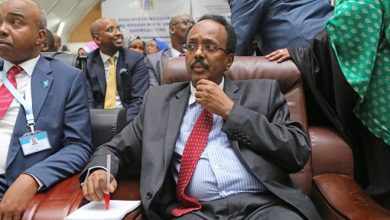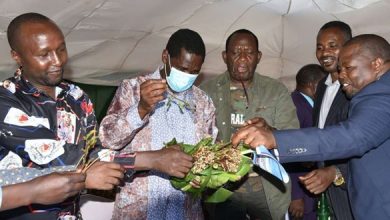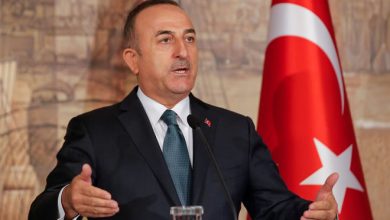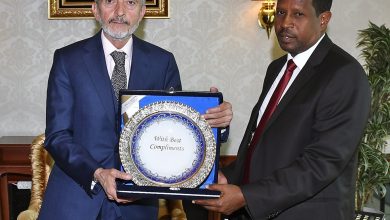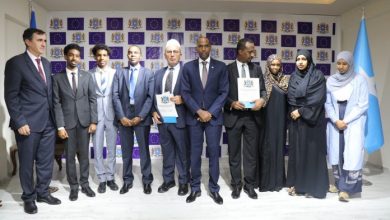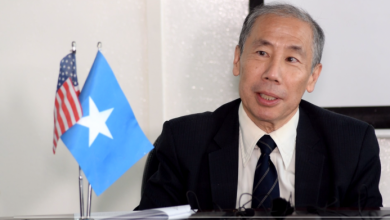Somaliland’s Recurring Human Rights violations in Las Anod
Islam warns its adherents against injustice and oppression. There are verses in the Quran that emphasize the fact that God eventually destroys oppressors and comes to the aid of the oppressed. The Pharaoh of the Exodus, believed to be Ramses II, is a good example. Ramses and his army drowned after they pursued the fleeing Israelis when God sent his prophet Moses to guide them across the Red Sea to the Sinai and rescue them from the oppressive Egyptians.
The famous Somali poet and Darwish warrior, Ismail Mire, has a famous poem known as “Kibir”, a Somali word that is synonymous with the actions of a powerful person whose arrogance leads him/her to oppress others without any justification. When the British Empire defeated the Darwish movement after a resistance that lasted for twenty-one years, Ismail found himself at the mercy of a British collaborator and lackey known as Carab Dheere who asked him to compose a poem in his praise. Ismail was well known for his refusal to address a high-ranking British officer as Sir arguing that the lips which used to address the leader of the Darwish uprising as Sayed Mohamed, would never be able to address an invading infidel as Sir. At the peril of incarceration, Ismail refused to oblige Carab Dheere and instead recited a poem filled with examples of oppressors like him who suffered for their arrogance. He concluded his poem by predicting that Carab Dheere would meet the same fate as the oppressors before him. I leave it to your imagination as to what happened to Carab Dheere a few days after Ismail’s powerful poem.
Before Somalia’s collapse and the ensuing civil war, Somalis in general were popular for standing up to injustice and defending the oppressed at all costs. They invariably welcomed and protected persons or clans seeking protection from enemies or natural disasters and considered such behavior as a noble and honorable cause. Somalis call that “Gobannimo”. Any failure to protect the weak and vulnerable is ignoble and it is known as “Gunnimo.”
Unfortunately, this nobility is in short supply these days as illustrated by the unfolding disaster in Las Anod, the capital city of the Sool region in Northern Somalia.
The civil war forced members of Somali clans in the South to flee their original regions. The displaced people were mostly skilled farmers and tradesmen who contributed to the economic development of the hosting regions. Las Anod was one of the major cities that welcomed and hosted these refugees who have lived there for more than twenty years, raising families, and becoming an integral part of the local population.
On October 2nd, the Somaliland administration started to round up hundreds of these people, who became an integral part of the local population, and trucked them across the border to Puntland. Somaliland did not give the refugees any advance notice of their deportation and the chaotic operation resulted in the separation of kids from their parents. The deportees left behind their possessions and wealth such as chicken farms and vegetable stands. Masons left behind unfinished buildings and employees lost their wages and salaries. There were scenes of pregnant women giving birth in the desert away from proper medical care. It was as if we were witnessing a replay of the family separation policy of the Trump Administration at the Mexican border, and the botched Afghan evacuation operation of the Biden administration on a smaller scale.
These flagrant human right violations were committed by the leaders of a separatist enclave known as Somaliland. They occupied Las Anod by force in October 2007 against the wishes of the unionist clans in the city. All the traditional leaders of Sool evacuated the city and are still refugees themselves in neighboring Puntland. They have all expressed their horror and dismay at the actions of the Somaliland administration against the refugees they welcomed to their city long before Somaliland occupied it by force.
The Somaliland administration has justified its cruel actions by unjustly accusing the deportees of being behind a spate of targeted murders against the most prominent personalities in the city. These murders started in 2010 and claimed the lives of more than eighty innocent people. The latest murder occurred less than a month ago which led to an uprising in the city and a call for the eviction of the Somaliland security forces who failed in solving the mysterious murders. The deportees had no legal recourse to argue against their sudden eviction.
The Minister of Interior of the Somaliland administration, Mohamed Kahin and its heads of the security forces took the arbitrary decision to deport Southwestern Somalis from Las Anod without any due process of law. They used contingents of the feared Rapid Response Unit (RRU) which are based in Burao and Hargeisa and funded by some western countries. They normally use these forces against any individual who fails to toe the secession line, such as Coldoon, a unionist humanitarian worker who objected to the way some private educational institutions are run. These forces were also used to round up and ship eighteen teenage girls from Las Anod to a Berbera jail where the summer temperatures were unbearable. Their only guilt was celebrating the Somali National Day and brandishing the blue Somali flag.
Somaliland plans to achieve two goals from deporting Somalis from the Southwest:
1. To quell the nascent uprising of the local population in Las Anod who have become fed up with the recurring murders of their prominent people, the incarceration of their youth whenever they express their support for Somali unity and integrity, and the lack of any meaningful development projects in their region when compared to other regions controlled by Somaliland.
2. To entice regions in the South to retaliate against Somalis from the North and deport them from their cities. It is a desperate attempt to stop the constant flow of unemployed youth who flock to Mogadishu and other cities in the South seeking employment and business opportunities. The false narrative of securing world recognition by a desperate administration that has held its people hostage for thirty years through lies and hate mongering seems to be running out of steam.
Although the traditional leaders, religious leaders, and civil society members of Sool have all spoken out against the cruel actions of Somaliland, it has come as a shock to listen to the former speaker of the Somali parliament, Jawari, and the Prime Minister of Somalia accusing the people of Sool to have condoned or encouraged the expulsion of Somali people from their capital city.
The people of Sool are under occupation by an invading force and have no say in the running of their cities. They are at the mercy of a determined secessionist administration whose sole aim is to reach the old British/Italian colonial borders with Puntland by force and convince the international community that they deserve recognition having held fair and free elections and secured their border against a chaotic Southern Somalia that is at war with itself.
The Federal Government in Mogadishu is unable to defend the deportees or the people of Sool because the Security Council denied it the means to secure the integrity of its country and therefore lacks neither the will nor the power to stand up to Somaliland and its increasingly bold moves to destabilize and disintegrate Somalia.
The people of Sool, parts of Eastern Sanag and Ayn have been patient for a long time and have tolerated all kinds of injustice in the hope of securing recognition from an absentee Federal Government of Somalia (FGS) as a federal member state. The FGS and other Somalis abandoned them to deal alone with a well-armed and well-financed separatist enclave that is trying to destroy Somalia. Even president Farmajo declined to answer a question posed to him by a young Somali lady regarding the fate of these regions. It is strange that the Somali Prime Minister, Roble, calls upon the people of Las Anod to stand up against the eviction of Somalis form the Southwest by confronting a well-armed entity that is determined to have its way by force.
The deportation of displaced Somalis from Las Anod is contrary to the values of the people of Las Anod, and it is Somaliland that has undertaken this without their knowledge, participation, or consent. We hope that the International community and the Federal government will make Somaliland pay for their callous and inhumane misdeed.
Ali H. Abdulla
aliegeh@gmail.com
